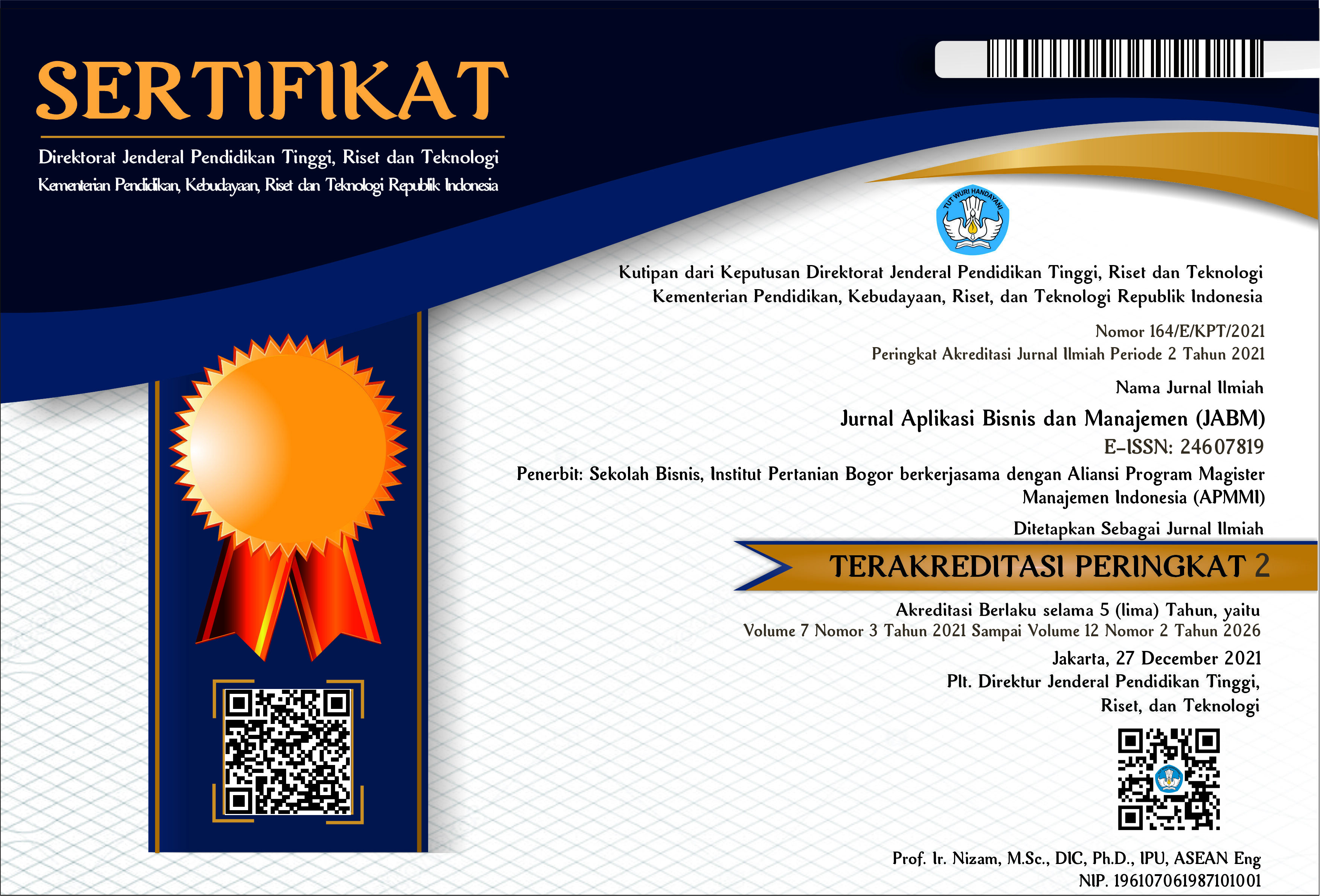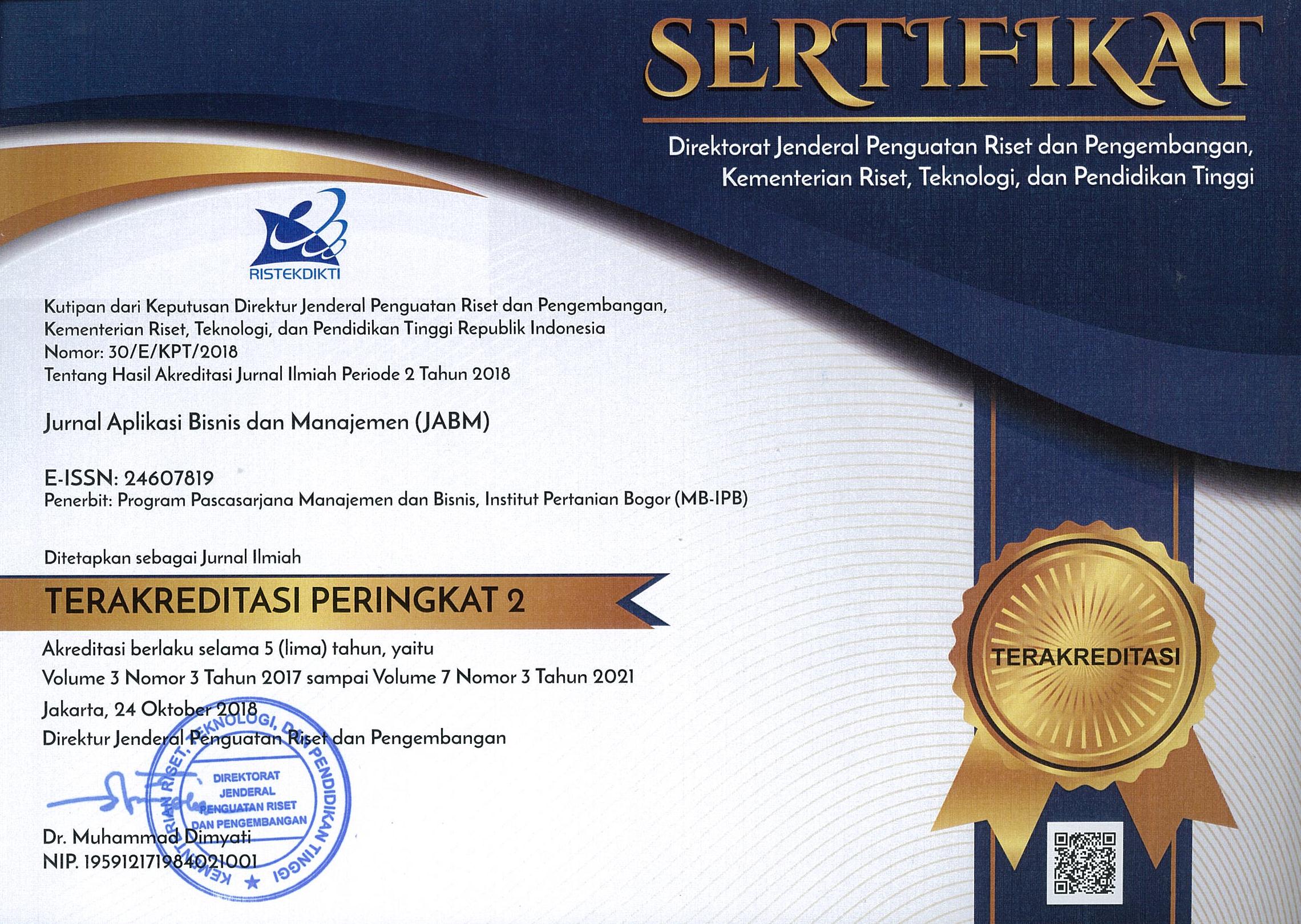Determinant of Financial Distress on The Retail Public Companies: Indonesia Case
Abstract
Background: The retail sector plays a significant role in the Indonesian economy. According to data from Badan Pusat Statistik (BPS) in 2020, the retail sector contributed 12.93% to Indonesia's total Gross Domestic Product (GDP). However, results from the Retail Sales (SPE) survey by Bank Indonesia indicated a downward trend in the average annual growth of real sales for retail from 2015 to 2020. A decline in sales can lead to a decrease in income. The company's inability to balance income and costs raises the potential for financial distress.
Purpose: This research aims to study which financial factors may influence financial distress.
Design/Methodology/Approach: The observation period is from 2017 to 2021. This research uses the Debt Service Coverage Ratio (DSCR) as a proxy for financial distress. This research also employs a binary logistic model to identify which financial factors influence financial distress.
Findings/Result: Logistic regression analysis revealed that Return on Equity (ROE) has a negative and significant effect on the DSCR value with a coefficient of -15.066. Equity-to-Total Assets ratio (EQ/TA) also has a negative and significant effect on financial distress with a coefficient of -5.042.
Conclusion: The results emphasize the importance of consistent management of company performance, particularly by monitoring financial ratios that significantly affect the likelihood of financial distress.
Originality/value(State of the art): This research offers new insights into the impact of financial ratios on financial distress, specifically within the context of the retail sector experiencing economic uncertainty during the COVID-19 pandemic. It is focusing on a critical period and a specific sector, thereby providing valuable contributions to stakeholders such as investors, company management, and policy makers.
Keywords: DSCR, financial distress, financial ratios, logistic regression, company management







